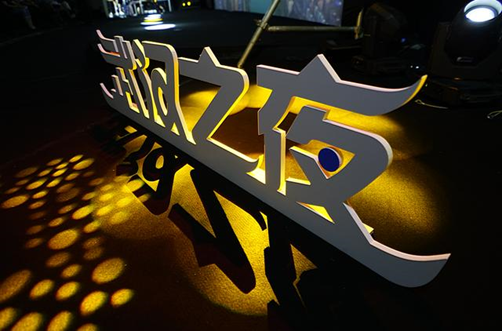Several Policies of Wuhan on Accelerating the Development of Cultural Industry
RELEASE: August-22 2017 07:22:46 CHECK: LIKE: 0
The following policies are made to further implement the spirit of the 12th CCP Congress of Wuhan Municipality, promote the implementation of Wuhan Revitalization Plan of Cultural Industry (2012- 2016) and further accelerate the development of cultural industry in Wuhan.
I. Fiscal and tax policies
(1) The Wuhan Finance Bureau will allocate no less than 200 million yuan as special fund for cultural industry development every year since 2013 and will correspondingly increase the amount according to the increase of financial resources in future, and will support the development of cultural industry by providing interest subsidy, subsidies and rewards, etc.
(2) For newly established cultural enterprises, 100% of the local retention of corporate income tax paid by them in 3 years after their industrial and commercial registration will be awarded according to the equal standards. For new high-tech enterprises in the field of culture, the enterprise income tax will be levied at a reduced tax rate of 15%. For the recognized demonstration enterprises integrating culture and science & technology at municipal level, the one-time rewards of 200,000 yuan will be provided.
(3) For recognized cultural industry demonstration parks at municipal, provincial and national level, the one-time rewards of 300,000 yuan, 500,000 yuan and 800,000 yuan will be provided respectively. For the recognized demonstration parks integrating culture and science & technology at municipal level, the one-time reward of 500,000 yuan will be provided. The financial input to the construction of cultural industry parks shall be borne by municipal and district financial departments equally.
(4) For the new professional incubators combining culture and science & technology, subsidies up to 2 million yuan may be provided according to the incubating area as per standard of 15 yuan/ m2. Encourage incubators to build public service platform integrating culture and science & technology and provide subsidies up to 1 million yuan as per 50% of annual cost of constructing its own platform.
II. Investment and financing policies
(5) Establish a Wuhan cultural development investment (group) company and build an investment and financing platform for cultural industry development in whole Wuhan.
(6) Promote the listing and financing of qualified cultural enterprises, and provide a phased award up to 1.5 million yuan for cultural enterprises listed at home and abroad. For cultural enterprises issuing medium- and long-term bonds, including SMEs set bond, provide a one-time expense subsidies at 2‰ of actual financing amount.
(7) Support the guarantee institutions to reinforce the guarantee of intellectual property pledge. For guarantee institutions which are established by law in Wuhan with registered capital of over 50 million yuan, provide financing services for cultural small and medium-sized enterprises (SMEs) in Wuhan and have conducted guarantee business for 2 years or above and whose average daily amount guaranteed amounts to twice of paid-in capital or above but no more than 10 times of the paid-in capital, subsidies shall be provided yearly at 1% of average daily amount guaranteed in the year; the maximum amount of subsidies can amount to 3 million yuan.
(8) Promote key venture capital enterprises to increase risk investment in cultural enterprises and cultural industry projects. For venture capital enterprises that invest in unlisted small and medium-sized high-tech enterprises for over two years by means of equity investment, their taxable income can be deducted by 70% of amount invested in the small and medium-sized high-tech enterprises at the year when they hold the equity for 2 years; if the amount is insufficient to offset the taxable income, then the insufficient part may be carried forward and deducted in future tax year.
III. Policies of independent innovation and achievement transformation
(9) The income of cultural entities and individuals from technology transfer, technology development and relevant technical consultation and technical services can be exempted from added-value tax, urban construction tax, education surcharges and local education surcharges. If cultural enterprise and public institutions carry out technology transfer, then the part of income less than 5 million yuan from the technology transfer in a tax year can be exempted from corporate income tax; and the part exceeding 5 million yuan can be exempted from half of corporate income tax.
(10) Encourage cultural enterprises to increase R & D investment. For cultural enterprises whose main business income in the last year is no less than 30 million yuan and whose total amount of research and development expenditure in latest 3 fiscal years is no less than 4% of the income, subsidies up to 4 million yuan can be provided at 20% of research and development expenditure.
(11) Increase the pre-tax deduction of corporate income tax invested by cultural enterprise for independent innovation. For R&D expenditure attributable to the development of new technology, new product and new process by cultural enterprises, if it fails to form intangible assets and to be included in current profits and losses, after deduction according to fact as specified in provisions, pre-tax deduction of corporate income tax equal to 50% of R&D expenditure can be made; if it forms intangible assets, then it shall be amortized at 150% of costs of intangible assets. For expenditure on staff education of enterprises, the part within 2.5% of total salary can be deducted prior to payment of corporate income tax; while the part exceeding 2.5% of total salary can be carried forward and deducted in the next tax year.
(12) During the establishment of Wuhan science and technology planning projects, support the projects applied for by independent innovation platforms of cultural enterprises including municipal enterprise research and development centers and engineering technology centers. For national key laboratories, national engineering (technical research) centers and enterprise technology centers of cultural enterprises approved by relevant departments of the State Council, provide a one-time subsidy of 1.5 million yuan. For post-doctoral research workstations of cultural enterprises newly approved, Wuhan finance department will provide subsidy of 0.5- 1 million yuan.
(13) Improve the system of cultural and scientific innovation, and speed up the transformation and industrialization of cultural achievements. Provide a one-time subsidy of 300,000 yuan for the recognized industrial technological innovative strategic alliances in the culture field. Provide rewards of 0.5 million and 1 million yuan for leading enterprises graded as provincial and national strategic alliance respectively.
IV. Asset and land policy
(14) For cultural enterprises subject to merger or division, corporate restructuring and entire sale, their total assets can be checked according to national unified financial regulations and the asset losses checked can be offset with the undistributed profits, surplus reserves, capital reserves and paid-in capital in sequence.
(15) According to the principle of "project-based land supply", for the key cultural industry projects that play a greater role in promoting the development of local economy, whose original land users use the land obtained for cultural industry, the land can be supplied by means of allocation, transfer, investment and leasing, etc. on the premise of compliance with urban and rural planning land use; for the key cultural industry projects approved by Wuhan municipal government, the land can be supplied in a tendering manner, and the minimum price of land transfer can be determined to be no less than the sum of acquisition fees of the project land, early-stage development cost of the land and relevant fees charged as stipulated; if state-owned enterprises use the allotted land for cultural industry projects, the use rights of such allotted land can be disposed in the manner of investment or authorized operation.
(16) For the land for key projects of cultural industry, the income of land transfer shall be used for the construction of cultural infrastructure in the project area with priority after deduction of relevant special fund according to national regulations.
(17) If the allotted land such as industrial premises and historical and cultural blocks are used for establishment of cultural enterprises, those in compliance with national regulations and falling in industry upgrading and urban functional layout optimization in Wuhan can keep the nature of land use rights and land use unchanged temporarily on the premise that holders of the land use rights remain the same.
V. Cultural trade and consumption policies
(18) Encourage cultural trade activities to promote the prosperity of the cultural market. The export of books, newspapers, periodicals, audio-visual products, electronic publications, finished films and television, etc. can be subject to export rebates according to regulations. The income of domestic organizations or individuals from overseas provision of labor services of culture and sports undertakings (excluding telecasting) can be exempted from business tax temporarily. If the self-use equipment, auxiliary equipment and spare parts are used for production of key cultural products and are imported since they can't be produced in China, then they can be exempted from import tariff and import value-added tax.
(19) Provide subsidy equal to 50% of exhibition booth cost for cultural enterprises in Wuhan that participate in overseas famous cultural exhibitions organized by municipal units or above. For overseas commercial performance of excellent plays awarded as excellent cultural work at municipal level or above, provide subsidy (cumulatively 0.5 million yuan at most) as per standards of 20,000 yuan/ performance.
(20) Expand the scope of government procurement of cultural products and services. When purchasing cultural products and services, all the offices, public institutions and social organizations under the budget management in Wuhan, on equal conditions, shall purchase independent innovative cultural products and services in Wuhan with priority.
VI. Policies on intellectual property rights and industry & commerce
(21) In case of establishment of cultural industry company, it is allowed to pay up the registered capital in two years, but the down payment shall be no less than 20% of the registered capital. Investors are allowed to invest in establishment of cultural enterprises with evaluated intangible assets such as trademarks, technologies and scientific and technological achievements, etc. The ratio of such evaluated intangible assets to total registered capital can be 70% at most.
(22) Establish a mechanism of intellectual property rights participating in the distribution as a production factor. Encourage the cultural enterprises to allow high-level cultural talents who have made great contributions to buy shares with intangible assets such as copyright, patent rights and trademark rights and participate in the income distribution.
(23) Strengthening the construction of brand and standardization of cultural industries. Support cultural enterprises, cultural products and services to participate in the evaluation of national brands. Provide corresponding rewards for those awarded a national title. Protect and promote the well-known trademarks of the cultural industry in Wuhan and regularly prepare and publish the list of well-known trademarks of cultural industry in Wuhan. Provide rewards of 1 million, 0.5 million, 0.2 million and 0.1 million yuan to cultural enterprises and public institutions that leads the preparation of international, national, industrial and local standards respectively.
VII. Policies for inviting outside investment
(24) For newly introduced and recognized key cultural industry projects with investment of over 1 billion yuan, interest subsidies will be paid for its domestic loans for construction fund at 1% of average daily loan balance of the project in the year for a period of 1-3 years.
(25) For the headquarters of domestic and foreign well-known cultural enterprises that are newly introduced and independently accounted in Wuhan and invest over 100 million yuan in cultural industry projects in Wuhan for the first time, provide an one-time rewards of 5% of actual investment in the projects; the rewards for a single project can be 5 million yuan at most. If the headquarters, regional headquarters, procurement centers, research and development centers, etc. of the introduced domestic and foreign famous cultural enterprises self-build, purchase or rent office buildings, the local government shall provide corresponding subsidies; if they select sites in the planning area for construction, the government shall provide priority support of land supply and other aspects.
VIII. Policies on talent cultivation and talent introduction
(26) For cultural creative talents who are listed in national "Thousand Talents Program", Hubei provincial "Hundred Talents Program" and Wuhan "Huanghe Talents Plan", "3551 Talent Plan of Optics Valley" of East Lake High-tech Development Zone and "High-end Talents Aggregation Project" of Wuhan Economic & Technological Development Zone, provide project fund subsidies of 1- 6 million yuan.
(27) For high-level cultural industrial talents introduced in Wuhan, the local retention of individual income tax will be rewarded to them in full by municipal or district financial departments within 5 years from the recognition date. The allowance for settlement paid to employers according to national unified regulations will be exempted from individual income tax, so will the bonus offered by provincial government.
(28) Support and encourage the cultural innovative talents in the colleges and universities, scientific research institutions, state-owned enterprises and public institutions in Wuhan to leave the post and undergo entrepreneurship, and those people will be protected for 3 years. During the protection period, their original identity and professional technical titles shall be retained, the original units shall not terminate the employment contracts with them and their file wages shall be promoted accordingly. Allow and encourage the cultural innovative talents in the colleges and universities, scientific research institutions, state-owned enterprises and public institutions to start businesses or do part-time job in other enterprises while they hold the posts under the premise of finishing their work in their units; and the income made in this way will be owned by themselves.
(29) Reinforce the talent training, give priority to leading talents and cultural celebrities to participate in high-level training at home and abroad, and provide appropriate training grants. Provide subsidies for intangible cultural heritage successors and other special folk cultural talents to make literary and artistic creation and marketing promotion.
(30) Set up an outstanding contribution award for Wuhan cultural industry development and commend and reward collectives and individuals who have contributed to the development of cultural industry.
The cultural industry and cultural enterprises in the policy refer to operational industries and enterprises under all types of ownership which are consistent with the list of Classification of Culture and Related Industries (2012) and are market-oriented and engaged in production of culture and related products.
The detailed rules for the policy implementation and management measures for the policy shall be prepared separately. The contributions shall be made by Wuhan city and the district in proper proportion according to the principle of "residence management" and "The one who enjoys the benefits shall be responsible". All districts and departments concerned shall establish the specific measures to promote the development of the cultural industry in accordance with the actual situation. This policy shall be interpreted by the leading group office of the Wuhan municipal cultural system reform and cultural industry development, and shall be implemented from the date of promulgation.
HOT RANK
EVENT ALERTS
RELATED READING
- • The WeChat Official Account of Wuhan Planning Is Opened, and You Can Use a Mobile
- • Ruan Chengfa Holds Discussions with CPPCC Members, Replied To Their Suggestions,
- • Suggestions on Developing Wuhan into a City of Books, City of Museums, City of Ar
- • Focus on the Central Task, Take Measures Simultaneously and Spare no Effort to Pu
- • Report on Creativity and Innovation of Wuhan Metro Culture




